Community and Hierarchy
0

0

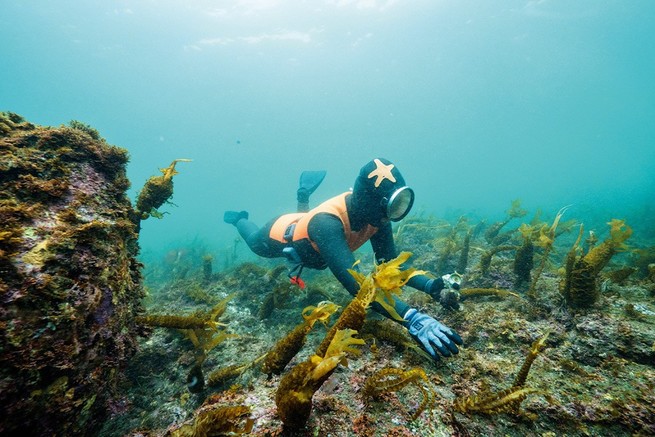
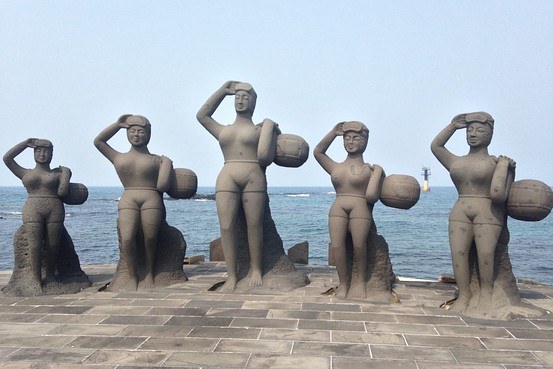
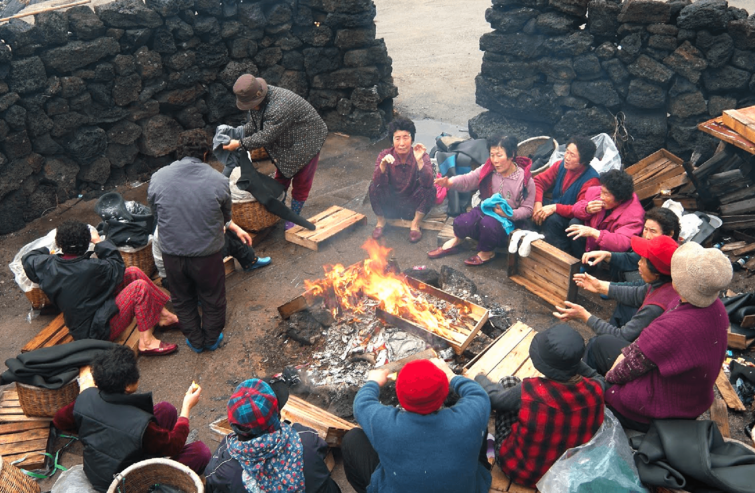
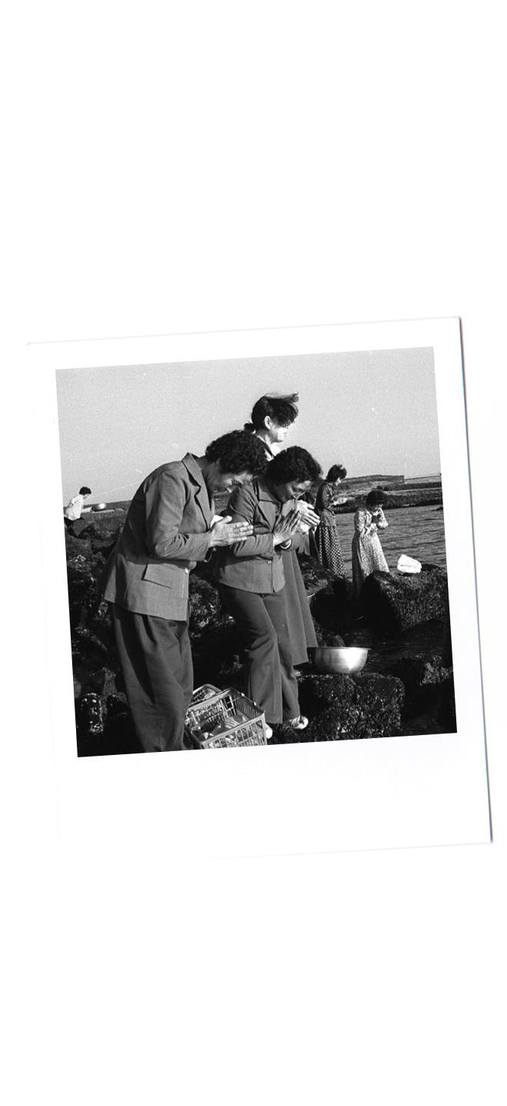
Community and Hierarchy
They are the mothers, the heads of households, the cultural heart and the economic engine of Jeju.
These "women of the sea" never dive alone; they work in groups to ensure their safety.
A Haenyeo group is represented by a haenyeo daesanggun (대상군 해녀 - "supreme diver") : the leader. She is elected unanimously by the other members of the group. Her role is to ease tensions and settle conflicts both within her group and with other Haenyeo from other villages. On Jeju Island, there are nearly 100 Haenyeo groups, almost one community for each coastal village.
There is a strong hierarchy among the haenyeos. They are divided into three groups according to their experience :
The girls start their haenyeo training at the age of 7 or 8, when they learn to swim. Then they practice diving from the age of 15, and start working at the age of 17 or 18. Becoming a diver requires good physical condition, especially in terms of lung capacity, ability to withstand high underwater pressure and resistance to cold water.
Moreover, knowledge of the marine ecosystem is essential for this activity: these women of the sea share beliefs and know-how handed down from generation to generation. Aware of nature and what it offers, they have a heightened knowledge of underwater life and respect the eco-system of the island and its surroundings, fishing only for shellfish in season.
Jeju haenyeo fish for up to seven hours a day and 90 days a year, holding their breath for one minute on each dive and making a singular sound as they return to the surface.
This close connection with their environment is also felt in the rituals they practice. Following the shamanistic tradition, the Haenyeo ask Yeongdeungsin (영등신 - the Wind goddess), and Yongwangsin (용왕신 - the Dragon god), for protection and a good harvest every year. These festivities, which last several days and reflect a way of life unique to Jeju Island, have been inscribed on UNESCO's "Representative List of the Intangible Cultural Heritage of Humanity" since 2009.
Before diving, the women pray to the sea goddess, Jamsugut, to ensure safety and abundant fishing. The knowledge is passed on to the younger generation through families, schools, local fishing cooperatives, Haenyeo associations, the Haenyeo School and the Haenyeo Museum.
Haenyeo culture in Jeju has been recognised by the provincial government as a symbol of the character of the island and the spirit of its people, and contributes to the improvement of the status of women in the community, to ecology through its environmentally friendly methods, and to the involvement of all communities in the management of fishing practices.
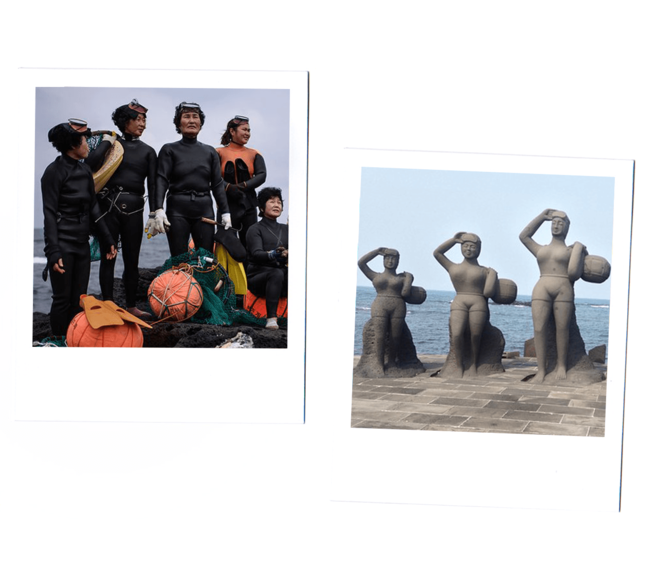
Suite
BACK